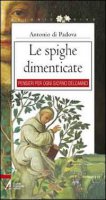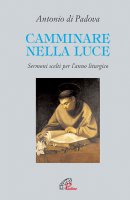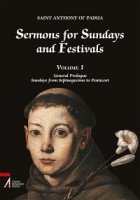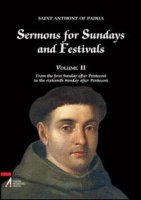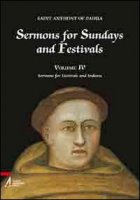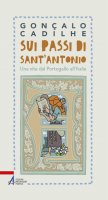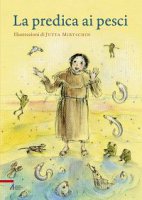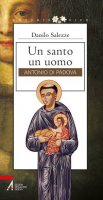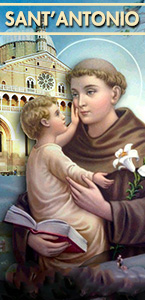Sermons for Sundays and Festivals
-[volume III] From the seventeenth Sunday after Pentecost to the third Sunday after Epiphany and Marian Sermons
(Fonti agiografiche antoniane)Antonio di Padova (sant')
EAN 9788825018790
The first integral translation into English Saint Anthony's Opus evangelium, published in 1979 by the Centro Studi Antoniani of Padua. This is the third of 4 volumes. It includes Sundays from the 17th after Pentecost to the third after Epiphany and Marian Sermons.
PREFACE
OCTOBER
The concordances for October are taken from the two books of Maccabees, except on the 18th Sunday after Pentecost, when there is only a passing reference to a concordance between the Introit and the story of the Maccabees in general, and another very brief reference which is not explicitly termed a concordance. This shows that where Anthony could find few helpful illustrations in the Office readings, he did not hesitate to draw extensively on other parts of the Old Testament. The Gospels this month concern the healing of the man with dropsy, the relationship between Christ and David, the cure of the paralysed man and the parable of the wedding-feast.
NOVEMBER
During the first two weeks of the month the Office readings come from Ezekiel and Daniel, and during the final two weeks they are from the twelve minor prophets. The Gospels are those of the ruler's son, the king who made a reckoning, the tribute-money and Jairus's daughter. Of the minor prophets, Anthony makes use mainly of Zechariah, but there are also references to Amos, Hosea, Jonah and Micah.
As noted previously, Anthony employs his system of "concordances" most thoroughly and consistently in the Commentaries for the season after Pentecost. However, he never confines himself slavishly to the current Office readings, but ranges widely over the Old Testament in seeking helpful parallels to Gospel texts. The Epistles are also treated quite thoroughly on some Sundays, but less so on others when the theme is harder to relate to the Gospel of the day.
ADVENT
Anthony gives the last of his short Prologues at the beginning of the Advent season, noting simply that he will draw his concordances mainly from Isaiah. There is a notable variation from his usual scheme on the third Sunday, when he takes as his primary text the Epistle rather than the Gospel (as he had done once before, for Pentecost). It is difficult to see why, unless he felt that three treatments of John the Baptist were unnecessary. The Epistle, from which the Introit too is drawn, is "Rejoice in the Lord always."
CHRISTMAS-TIDE
On the two Sundays after Christmas, Anthony treats the Presentation of Christ in the Temple, and his being found there at the age of twelve. On the first Sunday there is also an extended treatment of the Introit, from the Book of Wisdom: "When all things were in silence... thy almighty Word leapt down." ()n both Sundays Isaiah is cited frequently, but the only explicit concordances are from Ezekiel and Leviticus.
EPIPHANY-TIDE
The three Gospels for Sundays after the Epiphany have only short Commentaries. They concern the marriage at Cana, the healing of a leper, and Jesus preaching from Peter's boat. On the first Sunday there are concordances from Ruth and Genesis, and on the third from Jonah. The second Sunday has no specific concordances.
Anthony has now provided Commentaries for fifty Sundays (two Commentaries for the second Sunday in Lent), and thís must have seemed a good round number. He concludes the cycle with a short Epilogue, expressing his thanks (and relief) at finishing his task. He otTers his work to his brothers both for their own benefit and for that of the faithful to whom they would preach. He apologises for any defects, expressing his willingness for wiser minds to correct his work.
THE MARIAN SERMONS
The Marian Sermons form an integral part of the "Opus Dominicale", being placed between the twelfth and thirteenth Sundays after Pentecost. They have been relocated in this translation mainly for reasons of convenience. However, it is quite possible that they existed first as a separate cycle, since they differ stylistically from the adjacent Commentaries.
There is a short Prologue, based on the controlling text from Ecclesiasticus, and then short sermons for the Nativity of the Blessed Virgin, the Annunciation, the Nativity of the Lord, the Purification (or Presentation) and the Assumption. Although there are a few concordances, they are unsystematic, and may in fact have been added when the material was reworked for its present position. Anthony may well have wished to include material for the principal Marian festivals in his Sunday Work, the later cycle for festivals not yet having been conceived.
PROLOGUE FOR OCTOBER
We give thanks to the Lord Jesus Christ, the Son of God, the guide and the way whereby we have reached the first Sunday of the month of October. Note, then, that from the first of October to the first of November the Books of Maccabees are read in Church; and during this period there are four Sundays, in which are read four Gospels with whose clauses we will, by God's grace, concord certain stories of the Maccabees, as shall seem to us most appropriate.
-
-
18,00 €→ 17,10 € -
-
-
-
18,00 €→ 17,10 € -
-
-
18,00 €→ 17,10 € -
-
-
-
18,00 €→ 17,10 € -
-
-
18,00 €→ 17,10 € -
-
49,00 €→ 46,55 € -
8,00 €→ 7,60 € -
60,00 €→ 57,00 € -
65,00 €→ 61,75 € -
70,00 €→ 66,50 € -
9,50 €
-
29,00 €→ 27,55 € -
49,00 €→ 46,55 € -
8,00 €→ 7,60 € -
60,00 €→ 57,00 € -
65,00 €→ 61,75 € -
70,00 €→ 66,50 € -
9,50 €
-
29,00 €→ 27,55 € -
49,00 €→ 46,55 € -
8,00 €→ 7,60 € -
60,00 €→ 57,00 €


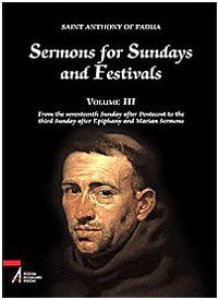
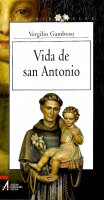
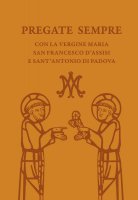

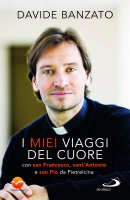
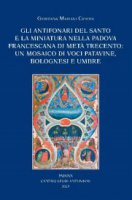


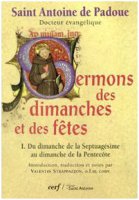
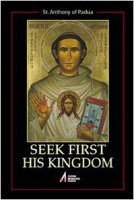
![Sermones dominicales et festivi [vol_3] / Sermones festivi. Indices - Antonio di Padova (sant')](/f20e/images/general/nobookbig.gif)
![Sermones dominicales et festivi [vol_2] / Sermones dominicales et mariani - Antonio di Padova (sant')](https://img.libreriadelsanto.it/books/q/QRmZcqbYJJM4_s4-m.jpg)
